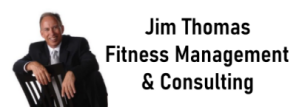Effective risk management is crucial for independent gym owners to ensure the safety of members, protect assets, and maintain a reputable business. This comprehensive guide explores various types of risks, strategies for controlling them, adherence to fitness standards, the importance of warnings, waivers, and releases of liability, meticulous record-keeping, and considerations when working with outside groups.
1. Understanding Types of Risks
Risks in a gym setting can be categorized into several types:
- Physical Risks: Injuries resulting from equipment misuse, slips, falls, or overexertion.
- Operational Risks: Issues arising from equipment failure, inadequate staff training, or poor facility maintenance.
- Legal Risks: Potential lawsuits due to negligence, non-compliance with regulations, or insufficient waivers.
- Financial Risks: Losses from theft, property damage, or unexpected expenses.
- Reputational Risks: Negative publicity stemming from accidents, poor service, or unethical practices.
2. Controlling Risks
Implementing a structured risk management plan involves:
- Risk Identification: Conduct regular assessments to identify potential hazards within the facility.
- Risk Evaluation: Assess the likelihood and potential impact of identified risks.
- Risk Mitigation: Develop and implement strategies to minimize or eliminate risks.
- Monitoring and Review: Continuously monitor the effectiveness of risk control measures and update them as necessary.
For instance, regular equipment maintenance and staff training are essential to mitigate operational risks.
3. Adherence to Fitness Standards
Compliance with established fitness standards ensures a safe environment:
- Facility Standards: Maintain clean, well-lit, and properly ventilated spaces.
- Equipment Standards: Use equipment that meets industry safety certifications and perform regular inspections.
- Staff Qualifications: Ensure trainers and staff possess appropriate certifications and are trained in first aid and emergency procedures.
Adhering to these standards not only enhances safety but also builds trust with members.
4. Importance of Warnings
Clear warnings help prevent accidents:
- Signage: Display signs indicating proper equipment use, potential hazards, and emergency exits.
- Verbal Warnings: Staff should provide immediate feedback to members engaging in unsafe practices.
- Educational Materials: Offer resources on safe exercise techniques and gym etiquette.
Effective warnings can significantly reduce the occurrence of accidents and injuries.
5. Waivers and Releases of Liability
Waivers are legal documents where members acknowledge the risks associated with gym activities and agree not to hold the gym liable for injuries:
- Drafting Waivers: Ensure waivers are clearly written, outlining specific risks and the extent of the waiver.
- Legal Compliance: Consult with legal professionals to ensure waivers comply with state laws, as enforceability varies.
- Separate Documents: Keep waivers separate from membership agreements to avoid confusion and enhance legal clarity.
While waivers provide a layer of protection, they do not absolve the gym from all liability, especially in cases of gross negligence.
6. Record-Keeping
Maintaining detailed records is vital for risk management:
- Incident Reports: Document all accidents, injuries, and near-misses promptly and thoroughly.
- Maintenance Logs: Keep records of equipment inspections, repairs, and maintenance schedules.
- Training Records: Maintain documentation of staff certifications, training sessions, and continuing education.
- Membership Agreements and Waivers: Store signed documents securely and ensure they are easily retrievable.
Proper record-keeping aids in identifying patterns, defending against legal claims, and ensuring compliance with regulations.
7. Working with Outside Groups
When collaborating with external trainers, organizations, or renting out facilities:
- Contracts: Establish clear agreements outlining responsibilities, expectations, and liability coverage.
- Insurance Verification: Ensure outside groups have adequate insurance coverage to protect against potential claims.
- Policy Alignment: Confirm that external parties adhere to your gym’s safety policies and procedures.
These measures help mitigate risks associated with third-party collaborations.
In conclusion, a comprehensive risk management strategy encompassing identification, control measures, adherence to standards, effective warnings, robust waivers, meticulous record-keeping, and careful management of external partnerships is essential for independent gym owners. Implementing these practices not only safeguards your business but also fosters a safe and trustworthy environment for your members. Contact Jim here.
Looking for Financing Options?
Take your gym business to the next level. Click here to explore tailored financing solutions, or contact us directly at 214-629-7223 or via email at jthomas@fmconsulting.net. Prefer to dive right in? Apply now or book an appointment for a personalized consultation.
Have a specific Gym Sales & Acquisitions question? Message me here and let’s chat! Or call/text at 214-629-7223.
Insurance Made Simple for Gym Owners & Personal Trainers/contact
Protect your business and your future. Discover custom insurance solutions here.
Custom Apparel Without the Hassle
Get premium custom apparel for your gym with no inventory required. Click here to get started.
Want to Grow Your Gym Business?
Unlock the secrets to scaling your fitness business with this must-read book: Click here.
Is Your Gym in Need of a Boost?
Whether you’re facing declining sales, need a fresh marketing strategy, or require a complete business turnaround, we’re here to help. With over 25 years of industry expertise, we offer a free initial consultation to explore solutions tailored to your unique challenges. Don’t wait—contact Jim Thomas at 214-629-7223, or gain immediate insights from our YouTube channel. Connect with us on LinkedIn.
Meet Jim Thomas
Jim Thomas is the Founder and President of Fitness Management USA, Inc., a premier management consulting, turnaround, financing, and brokerage firm specializing in the leisure services industry. With over 25 years of hands-on experience owning, operating, and managing fitness facilities of all sizes, Jim is an outsourced CEO, turnaround expert, and author who delivers actionable strategies that drive results. Whether it’s improving gym sales, fostering teamwork, or refining marketing approaches, Jim has the expertise to help your business thrive. Learn more by visiting his website or YouTube channel.






